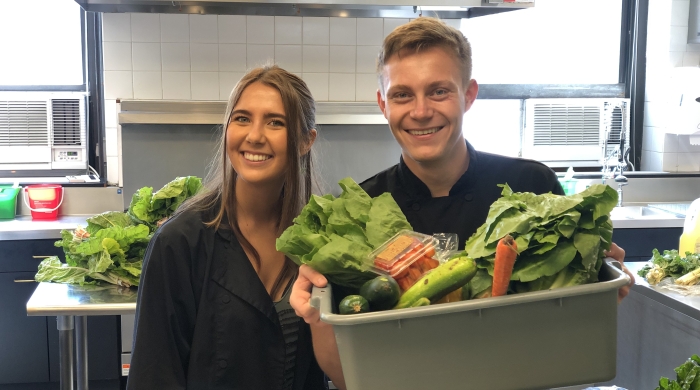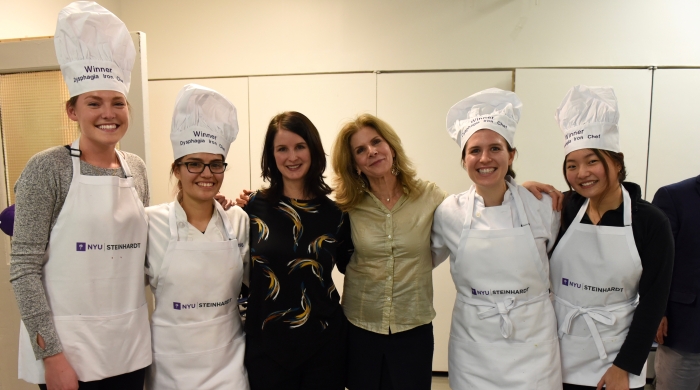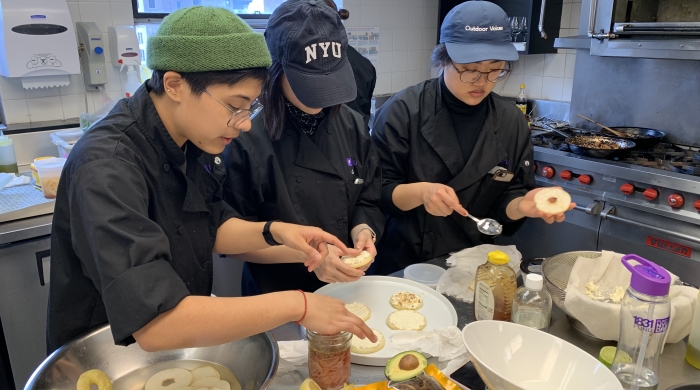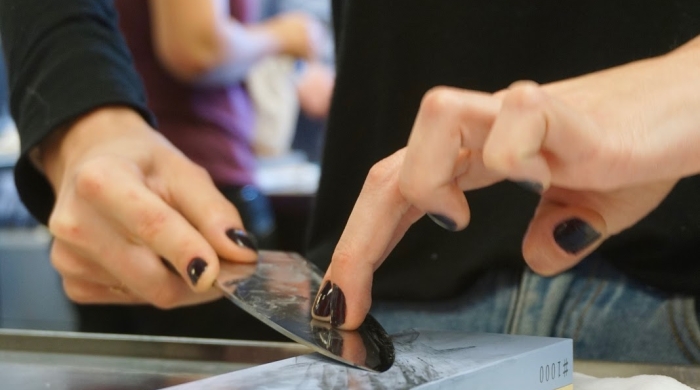Students from the Steinhardt Food Studies program and ITP use physics to create culinary anomalies.
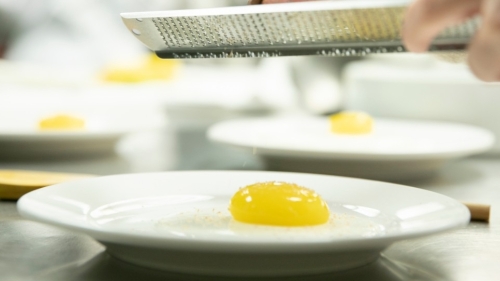
In ITP professor Stefani Bardin’s Culinary Physics class, looks may be deceiving. In one modernist cuisine exercise, what appears to be an egg is actually mango, yogurt, and milk. The egg “white” is made rubbery using agar, a substance made from seaweed. Calcium lactate increases the density of the mango “yolk” so that it cuts like the real thing.
This is just one example of what Bardin describes as “the magic of transformation,” which graduate students from Steinhardt’s Food Studies program and Tisch’s Interactive Telecommunications Program explore in this studio and seminar course. The course primarily takes place in the Steinhardt Department of Nutrition and Food Studies Food Lab.
Throughout the semester, they learn the basic principles of food biochemistry, enzymology, molecular gastronomy, and modernist cuisine—all in order to use food as a material to tell stories that are personal to them. The projects they create, from studies of tuna fishing in Sardinia to the role of wasabi root in Japanese cuisine, explore food as it relates to the senses, technology, history, politics, and culture.
“Sometimes when you’re trying to make people comfortable talking about difficult, divisive, or scary topics,” Bardin says, “being playful with food is an avenue and a trajectory to do that.”

But the seriousness of the subject matter doesn’t preclude fun—or snacking. In fact, Bardin emphasizes that tasting should be an essential element of any discussion about food. Borrowing from the principles of soft matter physics, student dishes are presented in a form that’s unexpected, unique, and often deeply weird. A range of experts—curators, chefs, artists, and others—visit the class to offer their expertise and feedback.
Read the original story from NYU News and check out more Cool Course Dispatches.
About the NYU Food Lab
More From the Food Lab
CSD and Nutrition Students Team Up for Iron Chef Competition
What do mashed potatoes, black bean soup, and coconut flan have in common? Not only are they foods easy for individuals with dysphagia, a swallowing disorder, to consume, but they are also dishes recently prepared by master’s students from the NYU Steinhardt Department of Communicative Sciences and Disorders and Department of Nutrition and Food Studies taking “Interdisciplinary Case-Based Management in Dysphagia.”
Fridays in the Food Lab: Cooking Competition Edition
A cooking competition hosted by the Food Lab featured student teams planning and executing menus in various culinary styles: gluten-free, vegan, locavore, kosher, and allergen-free.
Fridays in the Food Lab: Career Advice and Knife Sharpening 101
As a part of the Fridays in the Food Lab series, the Department of Nutrition and Food Studies held an interactive knife sharpening workshop and professional development panel discussion.

